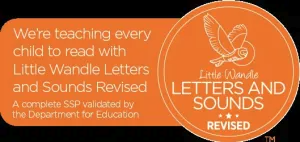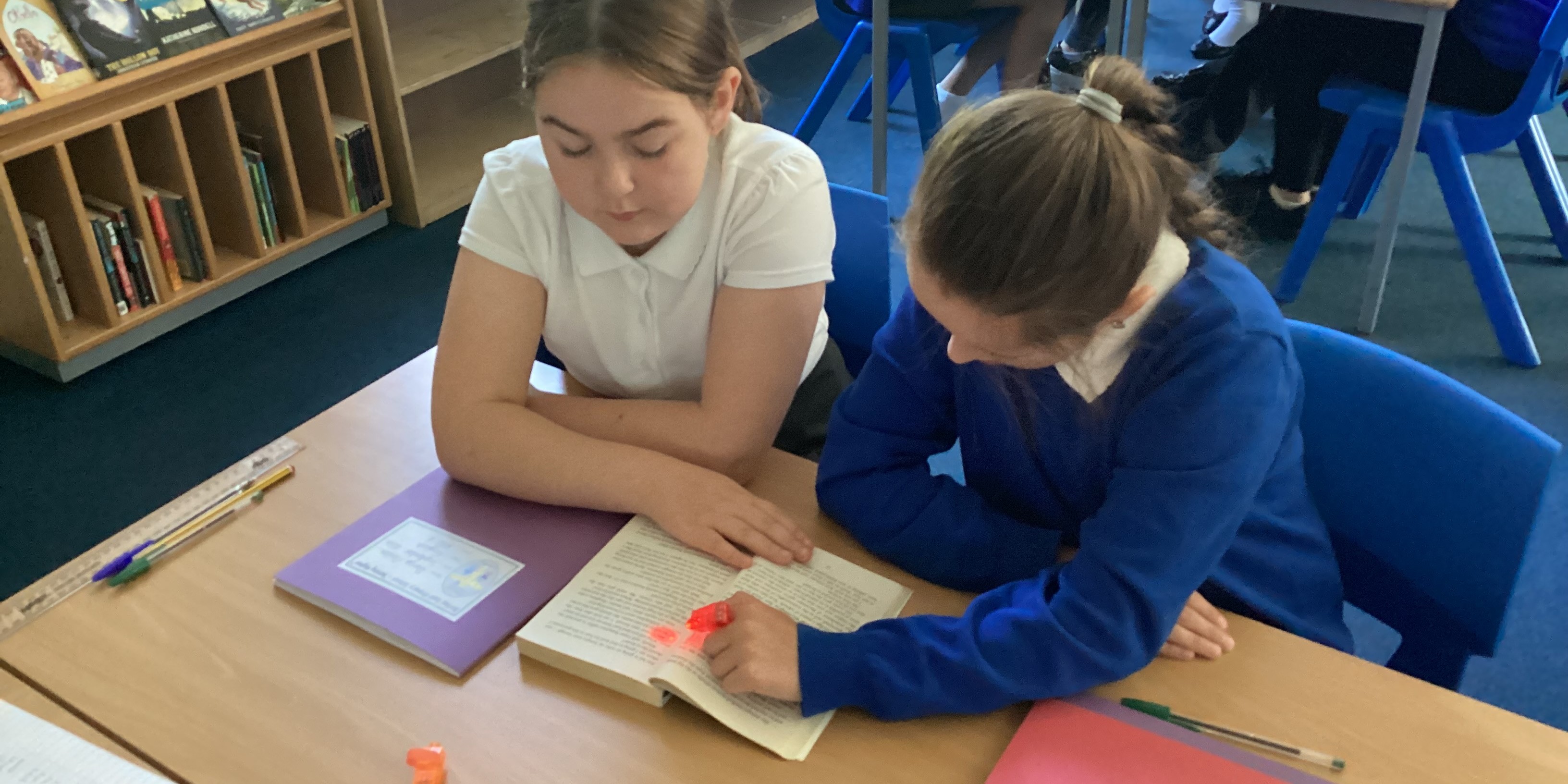One of the key curriculum goals of the Reception year and Key Stage 1 is for children to become capable and engaged readers. Learning to read is crucial because it is through reading that children are able to access other areas of learning and achieve their full potential. Phonics teaching gives children the tools they need to become effective readers. However, choosing to read is also important for children to reap the benefits of being a reader in childhood. Sharing books makes a big difference to your child’s education. When you read to your child you are making a positive impact on your child’s reading ability and their love of reading. Reading a book and chatting about it helps your child to:
- understand words and sentences
- use a wide range of vocabulary
- develop listening comprehension skills.
Reading books your child has chosen to read for pleasure is one of the best things you can do to help them succeed at school. A love of reading is the biggest indicator of future academic success!
At Birtley East we teach reading through Little Wandle Letters and Sounds Revised, which is a systematic and synthetic phonics programme. We start teaching phonics in Reception and follow the Little Wandle Letters and Sounds Revised progression. This ensures children build on their growing knowledge of the alphabetic code, mastering phonics to read and spell as they move through school.
Supporting your child at home
It is essential that parents and carers understand the importance of home reading and how to support their children’s reading in a positive and enjoyable way. Investing time to develop reading relationships between home and school is vital. We have invested heavily in providing the best quality phonics programme, approved by the DfE, to ensure that our children are given the best start on their reading journey.
You may notice a difference in the level of difficulty in the reading book that has been allocated to your child. We want reading to be an enjoyable experience where all children see themselves as being successful readers, so it is important that the reading books match the sounds and tricky words taught. Your child should be able to read 95% of their reading book without having to sound out words. This will build reading confidence and eliminate the frustration that can happen when a child reads a book with too many words they cannot yet decode easily.
Reading Books
Each week, children in Reception and Key Stage 1 will be given 2 reading books per week. The first will be a reading practice book. This will be at the correct phonic stage for your child. They should be able to read this fluently and independently. The second is a sharing book. Your child will not be able to read this on their own. This book is for you both to read and enjoy together.
Reading practice book
This book has been carefully matched to your child’s current reading level. If your child is reading it with little help, please don’t worry that it’s too easy – your child needs to develop fluency and confidence in reading. Listen to them read the book. Remember to give them lots of praise – celebrate their success! If they can’t read a word, read it to them. After they have finished, talk about the book together.
Sharing book
In order to encourage your child to become a lifelong reader, it is important that they learn to read for pleasure. The sharing book is a book they have chosen for you to enjoy together. Please remember that you shouldn’t expect your child to read this alone. Read it to or with them. Discuss the pictures, enjoy the story, predict what might happen next, use different voices for the characters, explore the facts in a non-fiction book. The main thing is that you have fun!
We now use Collins Big Cat Phonics reading books in school and the children will be assessed regularly to ensure that their book closely matches their phonic knowledge. The children are given the opportunity to read the same book three times each week.
Read One – Focuses on decoding (word building and recognition)
Read Two – Focuses on reading with prosody (understanding and emphasis plus developing a storyteller voice)
Read Three – Focuses on comprehension (word choices, punctuation, asking and answering questions about a text)
The children will begin each session by looking at the GPCs (written spelling patterns), tricky words, key vocabulary and also the more unusual vocabulary featured. The children will be exposed to a variety of high quality fiction and non-fiction texts which have been specifically produced to match our teaching.
We have invested heavily in new books and each child will be given a new reading book bag which must come to school every day. The children are allocated the same book that is read in class so the teacher can monitor engagement at home.
Daily phonics lessons in Reception and Year 1
We teach phonics for approximately 30 minutes a day. In Reception, we build from 10-minute lessons, with additional daily oral blending games, to the full-length lesson as quickly as possible. Each Friday, we review the week’s teaching to help children become fluent readers. Children make a strong start in Reception as phonic teaching begins in Week Two of the autumn term. We follow the Little Wandle Letters and Sounds Revised expectations of progress:
Children in Reception are taught to read and spell words using Phase 2 and 3 GPCs, and words with adjacent consonants (Phase 4) with fluency and accuracy.
Children in Year 1 review Phase 3 and 4 and are taught to read and spell words using Phase 5 GPCs with fluency and accuracy.
For further information to help you support your child at home, please click in the Little Wandle link below. The resources on this page will help you support your child with saying their sounds and writing their letters. There are also some useful videos so you can see how they are taught at school and feel confident about supporting their reading at home. Find our full Reception and Year 1 teaching programme overview here to see what your child will learn and when.
Reading Scheme
Once children have completed the Little Wandle Letters and Sounds phonics programme, they begin using our school reading scheme – Project X.
Project X is a finely levelled reading collection which (from Year 2) we use for independent reading. It helps every child reach higher standards through action-packed, emotive fiction, and inspiring non-fiction texts. The cross-curricular topics motivate all children and broaden reading choices for the whole school whilst developing all children’s subject knowledge and improving reading challenge and stamina.
In addition to independent reading, children in Key Stage 2 take part in daily guided reading sessions. On Tuesdays, Wednesdays and Thursdays, the reading activity is linked to the same reading foci as Key Stage 1, covering a range of activities linked to prosody, vocabulary and comprehension. On Mondays and Fridays, the foci is linked to the class text which is read daily throughout the week.
Reading for Pleasure
We have invested heavily in books for our children at Birtley East and hold regular reading assemblies to engage children in reading for pleasure. Furthermore, we regularly update our library with our ‘Hooks into Books’ purchased through Seven Stories. We have Pupil Librarians who are our reading ambassadors for the school and we have Reading Buddies where our Year 5 children support our EYFS children to read with increasing independence. Children who do not engage in home reading are carefully targeted to catch up in school with daily reading interventions to keep them on track. In addition to this, we regularly host author visits to broaden children’s reading choices and encourage them to read widely.


